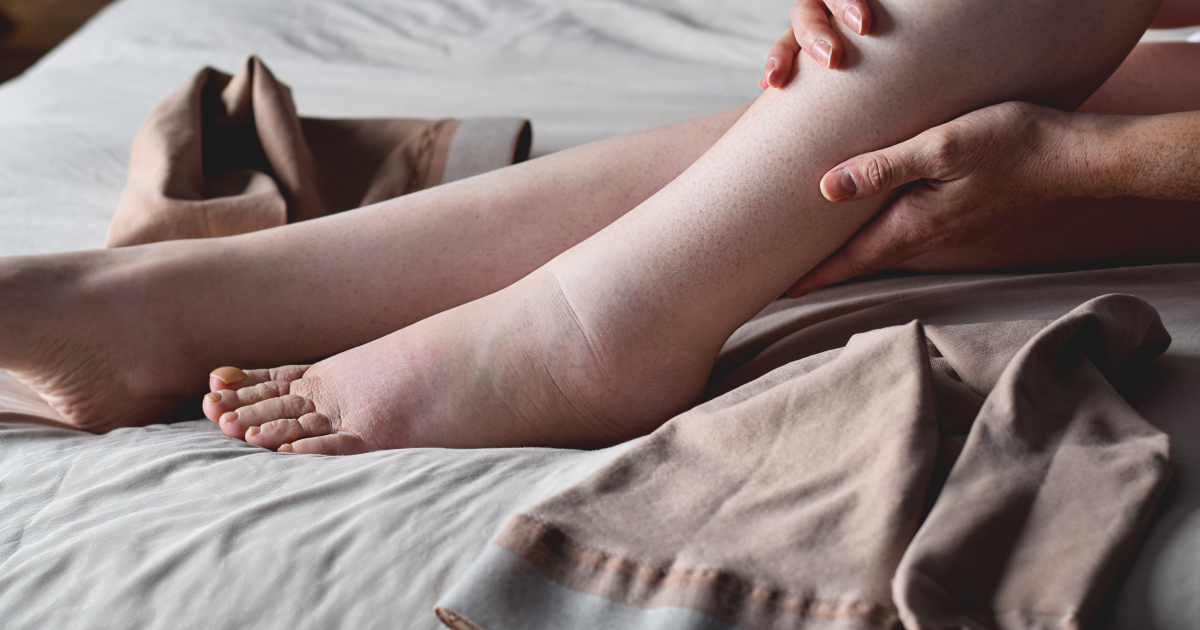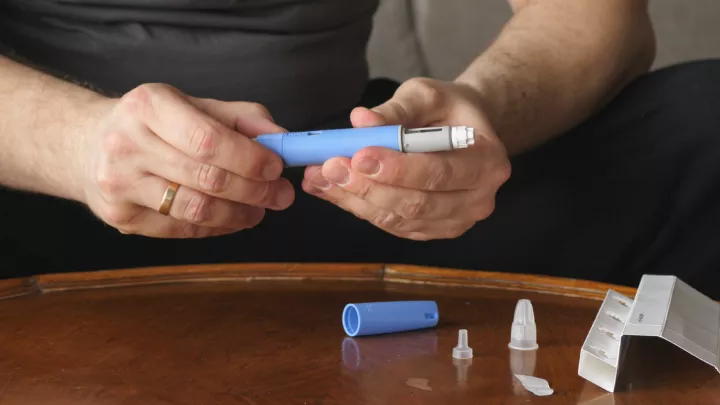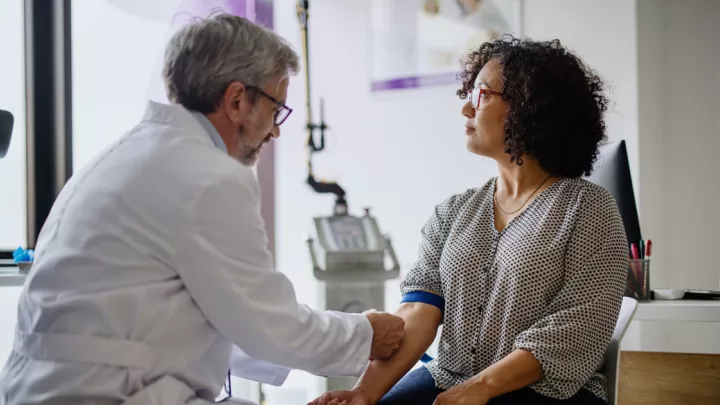Lymphedema: What is it, and how can it be managed?

Cancer and cancer treatment can often cause swelling called lymphedema. Read on to learn how it can be treated and if lymphedema can be cured.
Living with lymphedema can be uncomfortable, painful and impact self-esteem for many people. But when treated early enough, lymphedema can be managed with the help of physical therapy and proper medical care.
Lymphedema is an abnormal swelling in the body due to a disruption in the lymphatic system. It’s usually from a known cause (secondary lymphedema), such as node removal or cancer treatment. Primary Lymphedema means lymphedema occurs without a known cause. Patients can be born with an abnormality in the development of their lymphatic system, eventually creating a problem with swelling.
Molly Bumsted, DPT, PT, is a certified lymphedema therapist who specializes in treating lymphedema. Lymphedema therapy can alleviate pain, reduce the size and improve the appearance of the affected limb and reduce the risk of infection. Lymphatic physical therapists work with patients to create personalized exercise programs, manual lymph drainage, update compression garments to ensure they fit properly and help patients improve their overall quality of life.
“Part of the lymphatic system’s job is to maintain fluid balance in our bodies,” says Bumsted. “Lymphedema is chronic and can occur anywhere in the body. We typically see it in the arms and legs, however, it can be in the head, neck, breast and pelvis.”
Patients most likely to get lymphedema have a known medical disruption or damage to the lymphatic system, including node removal, radiation, blood clots, obesity or a severe infection like cellulitis. Lymphedema can occur three months to even years after cancer treatment.
“It’s important to be educated about the signs and symptoms of lymphedema, such as pain and swelling,” says Bumsted. “You can be fitted for a medical grade compression garment and know when to use it, be trained in self-lymphatic massage and understand activities and environmental risks that can worsen lymphedema.”
While lymphedema can’t be cured, the medical community is getting closer. There are some steps that can be taken to prevent it from happening, mitigate it if it does and prevent complications. The sooner lymphedema is treated, the more likely it can be controlled. If someone had lymph nodes removed or radiated as part of cancer treatments, they could be at risk for lymphedema.
“Lymphedema cannot be cured, only managed,” says Bumsted. “If the appropriate treatment strategies and management tools, including therapy, pumps, and, in some cases, surgery, are implemented, it can be managed successfully.”
Lymphedema can be triggered by prolonged exposure to hot, humid environments as well as hot tubs and saunas. Air travel and poor skin care can also impact lymphedema, Bumsted explains. About 1 in 5 women treated for breast cancer and had the lymph nodes in their underarms removed develop lymphedema.
The first sign of lymphedema is unusual or unexplained swelling or heaviness in a limb that can go away but then return randomly. People with a skin infection called cellulitis can be more susceptible to lymphedema. Because of the damage to the lymphatic system, the infection cannot be fought off easily.
“Lymphedema can limit range of motion as well as clothing, footwear and jewelry options,” says Bumsted. “If in the legs and feet, it can negatively affect gait and balance.”
Bumsted goes on to say lymphedema can also cause patients emotional stress and make them self-conscious about their appearance. But certified lymphatic therapists can help determine the stage of the lymphedema and ensure patients can continue their daily activities.
Why choose Nebraska Medicine?
In 2022, Nebraska Medicine obtained the Lymphatic Education & Research Network Centers of Excellence distinction. It’s currently the only facility in Nebraska with this distinction. The Physical and Occupational Therapy at Village Pointe Health Center boasts a team of experts, including five certified lymphatic therapists and lymphedema plastic surgeon Sean Figy, MD.
Are you experiencing lymphedema? We can help! Give us a call at 800.922.0000 or visit NebraskaMed.com/Village-Pointe/Physical-Therapy.





